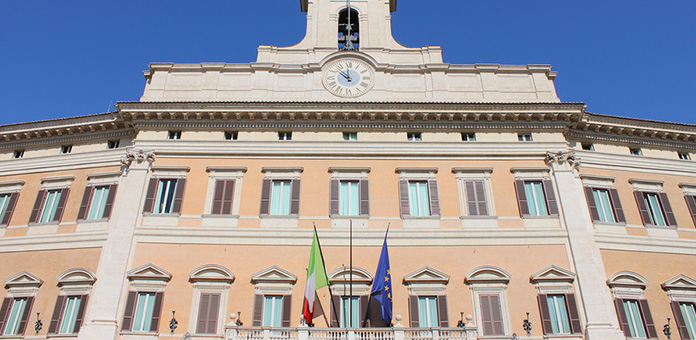
The Italian banking system continues to raise concerns as yet another potential financial crisis for the Eurozone. Many had expected the issue to come to a head in October with a national referendum on the policies of Prime Minister Matteo Renzi. The constitutional referendum will be held December 4, 2016.
Change or Collapse
The vote on five major constitutional changes is intended to allow Renzi to implement far-reaching reforms and enact several new laws. Most economists and analysts are watching the vote closely, feeling a “No” vote will trigger a major financial crisis, 1 centered on the ailing Italian banks. Renzi’s supporters claim the reforms will generate more confidence in the ability of the country to work out of its problems.
Pier Carlo Padoan, Italy’s Finance Minister, has been working tirelessly to convince world markets that the proposed moves will “…make the system more efficient, more stable and more long-term determined.” Lacking these changes, some feel the government itself will collapse, leaving the nation rudderless in growing political and financial maelstroms.
However, passage of the changes is far from certain, and Renzi has stated repeatedly he will resign if the measures fail at the ballot box. He states that such an outcome would mean essential economic reforms are delayed or even ignored at a time they are most needed.
Markets have been closely watching the political situation for months, and there have been dire predictions about the possible consequences of the proposals not gaining a majority support. 2 There are a number of reputable observers who are pessimistic about the outcome, and some even predict a collapse of the Euro as a possible outcome. This uncertain situation has even more weight due to the unexpected results of Brexit.
The Proverbial Straw?
While Italy has decades of economic woes and has benefited little from its participation in the EU, its current situation presents danger for all of Europe. 3 The significance of the looming collapse of the entire banking system in Italy is clear to many. According to analysts at the Eurasia Group, which specializes in risk assessment, “The situation in Italy, and its spillover for the rest of Europe, will continue to be one of the biggest macro-political risks we are concerned about.”
An international effort has focused on salvaging the most critical banks, but the process has been slow and has had limited success. The European Central Bank has made a number of demands to reduce debt and cease lending, many of which have not been met. 4 The failure to pass reforms will reduce further support from the ECB.
For those who understand the vital role of gold and precious metals at such times, this situation has spurred even more buying of the preferred safe haven investment. Unfortunately, the Italian situation is only one of the persistent and growing numbers of financial issues that affect entire nations around the globe. The motivation to buy gold is spurred by the ongoing question, “Which of these will be the straw that breaks the back of the international financial system?”.
Additional Sources
2 – http://www.cnbc.com/2016/09/26/italy-referendum-date.html
3 – http://www.marketwatch.com/story/why-italys-bank-crisis-could-be-ticking-time-bomb-2016-07-21
4 – http://www.bloomberg.com/news/articles/2016-10-31/italy-s-bonds-slump-as-polls-show-nation-rejecting-renzi-vote

